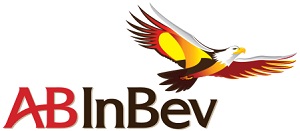SAB Miller shareholders have finally given the green light to the $79bn merger with AB InBev. AB InBev also gave the deal the thumbs up today, with the merger set to compete on october 10.
John Colley, of Warwick Business School, a professor of practice in the Strategy and International Business group, who researches large takeovers, said: “SAB Miller shareholders have hit the jackpot, whilst customers are ultimately likely to end up with less choice and higher prices.
 “Cost rationalisation will mean substantial redundancies amongst SAB Miller staff. The sheer extent of cost savings which will be extracted by AB InBev, together with the growth potential of Africa and Latin America, means that AB InBev shareholders might benefit after all.
“Cost rationalisation will mean substantial redundancies amongst SAB Miller staff. The sheer extent of cost savings which will be extracted by AB InBev, together with the growth potential of Africa and Latin America, means that AB InBev shareholders might benefit after all.
“The acquisition places AB InBev firmly in the growth markets of Africa and Latin America as Western markets mature and decline. The bid price started high followed by five increased offers, and has effectively been driven higher by competition authority demands and activist investors. Add to that the $2bn of advisor fees and stamp duty needed to get a complex and protracted deal done, and for most acquirers this would mean a value-destroying deal, but maybe not here.”
Simon Cope-Thompson, of mergers and acquisitions firm Livingstone, said: “SABMiller counts some of the biggest drink brands on its books, including Snow, the world’s best-selling beer by volume. The sheer scale and global reach that SAB currently holds was considered highly attractive in InBev’s quest to penetrate fast developing markets in South America, Africa and China and, eventually, to achieve global dominance. “The competition between these former rivals will remain unaffected in individual markets, as the two companies have very little geographic overlap. However, many of SAB’s brands will be snatched up by other global players, which could dilute the competition that it posed in some markets. In this respect, InBev has truly positioned itself to divide and conquer the industry.”
He said value was frequently lost in major deals through paying too much and indecisive integration. AB InBev is paying an enormous price but has clear views on integration.
Prof Colley said: “The $1.4bn of annual savings claimed by AB InBev looks a significant underestimate designed to appease affected parties such as governments and employees. AB InBev’s track record would suggest a much larger figure. Average savings for their last two major deals extrapolated would put the figure nearer $4bn. Good news for shareholders, less so for employees where substantial redundancies will inevitably arise. But, be assured, customers will not see any of it, as greater brewer market power is more likely to result in restricted choice and higher prices.
“AB InBev will reduce SAB Miller’s head office in South Africa to a regional office and close the regional structure including the London offices. In the brewing game, economies of scale and scope are dominant factors, together with control of distribution where competitors can be ‘locked out.’ As market share is so important, this is one industry in which acquisition strategies work.
“Mega acquisitions are rarely successful for shareholders in most industries, but brewing looks to be an exception.”



